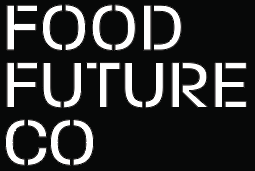Talking Impact Businesses with Food Future Co's Investment Manager, Michael Conway
by
Food Future
We are so excited to highlight Michael Conway, Investment Manager at Food Future Co!

“Working at FFC has helped humanize my experience with food. It’s helped show me the hard work and sweat equity behind businesses and brands. It’s too easy to walk into a supermarket these days and forget about the thousands of hours of labor from harvest to delivery that goes into producing food”
Michael Conway is a recent graduate of Bard College's MBA in Sustainability program and has over ten years of experience in business development, education, and entrepreneurship. His entrepreneurial journey began in Chile where he co-founded an English Language Institute after volunteering for a year with underprivileged high school students. After returning to NYC, Michael got certified as a Holistic Health Coach and is eager to work with food entrepreneurs disrupting the broken food system. Recently, Michael shared his thoughts on the role of food based companies in the food system, what he has learned from his time at FFC and how his time in Chile prepared him for the world of buisness.
What makes you most hopeful about the future of food?
I’m inspired by the hundreds of applications we receive and review at FFC. It’s not necessarily the ideas themselves (though fascinating), but it’s knowing there are people out there dedicating their lives to changing food systems. It’s easy to get bogged down by bad news, especially in the impact and sustainability spaces, but I find hope in working with founders with big visions of a more just and sustainable food system. I believe that in order for people and the planet to thrive businesses must adopt the concepts of Regenerative Economics and I see this happening. I see it happening in regenerative agriculture and regenerative aquaculture. I see it happening through the localization and shortening of food supply chains. I see it happening everyday when people choose to eat healthier and regenerate their own bodies. This all gives me hope.
What is the most fulfilling part of being part of FFC?
FFC has a unique and growing portfolio of food & ag startups. I love watching FFC grow and knowing each startup we support is working to change our food system. Also, I’ve always rooted for the underdog and challenged the status quo. So for me it’s satisfying to watch our portfolio companies grow while changing how food is produced, distributed, and consumed.
How have your past career experiences prepared you for your role at FFC?
I co-founded a company while living in Chile, developed a business plan, pitch decks, financials, pitched funders, raised capital and even went through an incubator. It was a roller coaster ride of five years so I know the highs and lows of running a business. This experience helped ground me and instilled the values of patience, persistence, and dedication. It also taught me to always celebrate the wins, and learn from the lows. FFC is a relatively young company so I’m applying the same mindset. I’ve also just wrapped up an MBA in Sustainability at Bard College which gave me time to refine my hard analytical skills to apply in our due diligence process and business development of FFC.

“I co-founded a company while living in Chile… it was a roller coaster ride of five years so I know the highs and lows of running a business.”
Pictured: Michael in a coastal microclimate of the Atacama Desert, Chile with a rare cactus called Eulychnia morromorenoensis.
What have you learned about the world of food while in your role at FFC?
As Shen says, “The food movement needs money”. I’ve learned that many investors are used to investing in tech where it’s easier to understand the potential for scaling. The food movement needs more patient capital from investors that share our vision of a healthier and sustainable food system. But I’ve also seen how funds and firms are popping up seeking more exposure to food investments and this validates what FFC is doing. We’ve also seen blockbuster IPOs like Oatly and Beyond Meat, which gives even more validation to the potential of investing in food.
Has working at FFC changed your perspective on the food system and food based companies? If yes, how so?
Working at FFC has helped humanize my experience with food. It’s helped show me the hard work and sweat equity behind businesses and brands. It’s too easy to walk into a supermarket these days and forget about the thousands of hours of labor from harvest to delivery that goes into producing food. As an aside, this is also why I think it’s so important to adopt circular business models in the food industry. Not only does food waste contribute to greenhouse gas emissions, it also diminishes the work that goes into getting that food to your table. I try to acknowledge that effort more and be grateful for every bite.
To you, what role do food based brands/companies play in the future of food?
Food companies have a responsibility to their employees, customers, and planet to “do the right thing”. The “right thing” is always open for debate, but for me it means things like sustainable sourcing throughout the supply chain and supporting BIPOC owned businesses, providing fair wages and incentives like ESOP, and transitioning to regenerative practices. These things take time, but it’s inspiring to see some of our portfolio companies work on these issues. The onus is not only on companies though, consumers and politicians of course have a responsibility to enable a more sustainable food system. It’s a group effort and reminds me of the African concept of Ubuntu. We’re all in this together.


